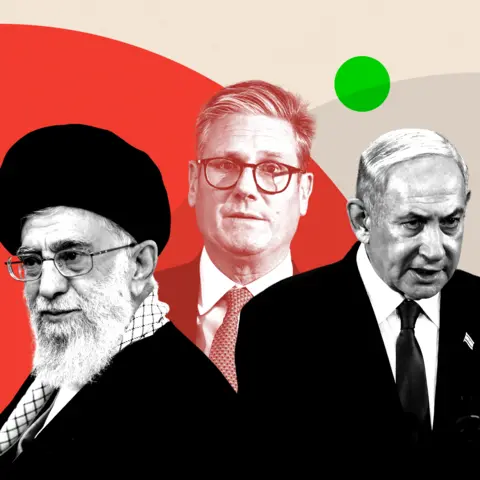ByTurkish Minute
October 4, 2024
Two people who are involved with a Turkish community center mentioned in an indictment against New York Mayor Eric Adams have said they were shocked to learn that the mayor cut off ties with them on orders from the Turkish government, New York-based local news outlet The City reported.
Adams is charged with bribery, wire fraud, conspiracy and soliciting campaign contributions from foreign nationals in a 57-page indictment unsealed on September 26. The indictment accuses him of accepting illegal donations and more than $100,000 worth of free plane tickets and luxury hotel stays from wealthy Turkish nationals and at least one government official in a nearly decade-long corruption scheme.
According to the indictment, a Turkish government official told Adams, who had a relationship with the Turkish community center in Brooklyn, in or around 2016, that the community center was affiliated with a Turkish political movement that was hostile to Turkey’s government and that if Adams wanted to continue receiving support from the government, he could no longer be associated with the community center, a demand to which Adams acquiesced.
The Turkish organization is referred as the “Community Center” in the indictment without mention of its name, but it is believed to be the Gülen-linked Turkish Cultural Center Brooklyn, part of a non-profit organization promoting intercultural and inter-religious dialogue.
Two people from the Turkish Cultural Center Brooklyn who spoke on condition of anonymity to The City out of security concerns said they didn’t know why Adams stopped associating with the cultural center until they read the indictment.
Adams attended multiple events in association with and hosted by the center, as far back as 2012, when he was a state senator. As Brooklyn borough president, Adams co-hosted a meat drive for food pantries with the center and attended the center’s annual “friendship dinner” in 2016 but didn’t make the event in 2017, one year after a coup attempt in Turkey.
The Gülen movement is accused by the Turkish government and President Recep Tayyip Erdoğan of masterminding the failed coup in 2016 and is labeled as a “terrorist organization,” although the movement denies involvement in the coup attempt or any terrorist activity.
“I was surprised to learn he stopped talking to our community members after he got a request or order from the Turkish regime,” said one of the people, referencing Erdoğan. “It was shocking news for us.”
That person said the organization didn’t have much communication with Adams since about 2016 and that an outreach coordinator could not get a response from Adams’ office around that time.
He added, “We thought he was our friend.”
A third person involved with the center said back in 2016 he had tried to warn Adams that those associated with the Turkish regime were trying to influence him. Adams waved him off, he said.
“A lot of elected officials were actually informed by the Turkish government supporters, but only Eric Adams stayed away from us. The others continued their relationship with us,” the person said. “As the Brooklyn borough president, when he wasn’t meeting with us any more, it was a little bit disappointing to us.”
Following the coup attempt the Turkish government launched a massive crackdown on Gülen-linked people and organizations not only in Turkey but also abroad, pressuring other countries’ governments to close down Gülen-affiliated organizations and to close their doors to Gülen followers.
Former NBA player and activist Enes Kanter Freedom also said earlier this week to US media that Adams withdrew his support for him due to orders from the Turkish government since Freedom is a follower of the Gülen movement.
He told cable news network NewsNation’s “Elizabeth Vargas Reports” he felt he got the cold shoulder from Adams after the two of them were invited to Greece to accept an award.
“Me and Eric had a conversation about organizing free basketball camps for kids in New York. And I remember he got so excited. He gave me his phone number and said, ‘As soon as you come back, let me know,’” Freedom said.
But the former player, who spent two seasons with the New York Knicks, said that when he returned from the 2022 trip, Adams ghosted him.
By Turkish Minute
October 3, 2024
New York City Mayor Eric Adams, who pleaded not guilty last week to fraud and bribery charges, returned to Manhattan federal court on Wednesday as a US prosecutor suggested that additional charges could soon be brought against others involved in the case, which centers on Adams’ alleged corrupt dealings with Turkish officials, Agence France-Presse reported.
Adams, 64, is the first sitting mayor of New York City to be criminally indicted. The charges against him include wire fraud, soliciting illegal campaign donations and conspiring with Turkish nationals and at least one Turkish official to accept bribes in exchange for political favors. According to the indictment, the mayor allegedly received luxury gifts, including business-class international flights, hotel suites and high-end restaurant meals, as part of the conspiracy.
During the hearing prosecutor Hagan Scotten told U.S. District Judge Dale Ho that it was “likely” additional charges would be filed against other individuals involved in the scandal and hinted that Mayor Adams could face more counts. Scotten emphasized the ongoing nature of the investigation, which could expand to include other potential co-conspirators.
Bribery allegations
The scandal dates back over a decade to Adams’ tenure as Brooklyn’s borough president, a position he held before becoming mayor of the nation’s largest city. Prosecutors allege that Adams accepted gifts and bribes from Turkish associates in return for political influence and favors. One key example involves Adams allegedly using his position to pressure New York City’s fire department to expedite approval for Turkey’s new high-rise consulate in Manhattan, despite safety concerns raised by fire officials.
Prosecutors claim that just days after helping push the project through, Adams solicited additional travel benefits from his Turkish contacts. The indictment describes a pattern of concealed financial dealings and secret arrangements designed to provide Adams with lavish perks while allowing his associates to benefit from his political influence.
The charges have already led to calls for Adams’ resignation from some city and state officials. Notably, Congresswoman Alexandria Ocasio-Cortez, an influential lawmaker from New York, has publicly called for Adams to step down, arguing that his continued leadership would harm the city. The mayor, however, has remained defiant, refusing to resign and stating that he looks forward to defending himself in court.
The political implications of the case are significant, especially with the 2024 presidential election approaching. The indictment is a potential embarrassment for the Democratic Party, as Vice President Kamala Harris and former President Donald Trump face off in a tight race.
Adams, who was once considered a rising star in the Democratic Party, now finds himself at the center of a scandal that threatens to tarnish his legacy.
Adams’ defense team, led by attorney Alex Spiro, filed a motion on Wednesday to dismiss one of the five charges against the mayor.
Spiro has requested that the trial be scheduled before March to potentially conclude proceedings before the Democratic primary for the next mayoral election. Adams, who is up for re-election in 2025, has expressed his intention to clear his name before facing voters once again.
Judge Ho reserved his decision on the motion and the trial date but scheduled a procedural hearing for October 31.



.gif)












